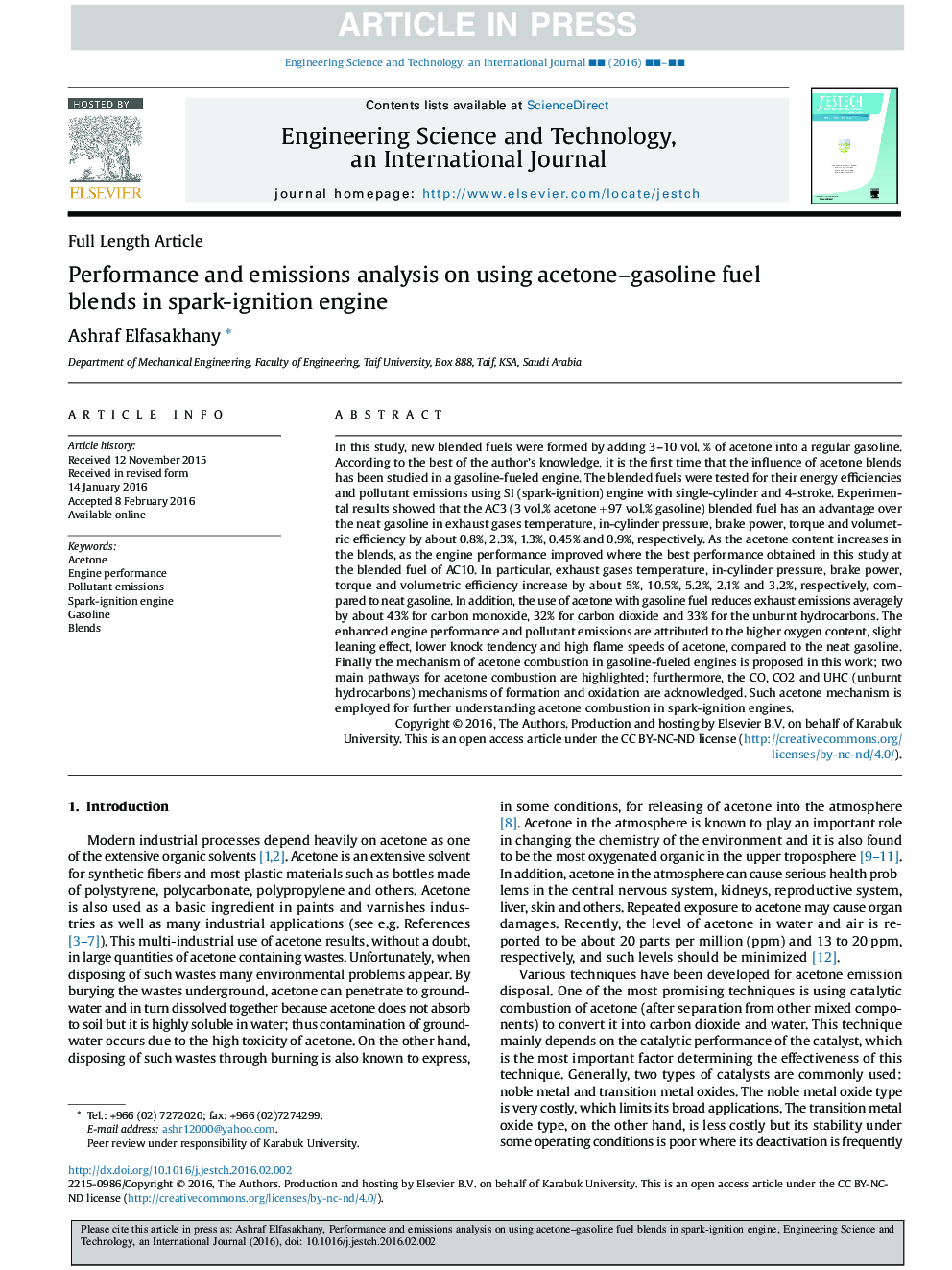| Article ID | Journal | Published Year | Pages | File Type |
|---|---|---|---|---|
| 6894281 | Engineering Science and Technology, an International Journal | 2016 | 9 Pages |
Abstract
In this study, new blended fuels were formed by adding 3-10 vol. % of acetone into a regular gasoline. According to the best of the author's knowledge, it is the first time that the influence of acetone blends has been studied in a gasoline-fueled engine. The blended fuels were tested for their energy efficiencies and pollutant emissions using SI (spark-ignition) engine with single-cylinder and 4-stroke. Experimental results showed that the AC3 (3 vol.% acetoneâ+â97 vol.% gasoline) blended fuel has an advantage over the neat gasoline in exhaust gases temperature, in-cylinder pressure, brake power, torque and volumetric efficiency by about 0.8%, 2.3%, 1.3%, 0.45% and 0.9%, respectively. As the acetone content increases in the blends, as the engine performance improved where the best performance obtained in this study at the blended fuel of AC10. In particular, exhaust gases temperature, in-cylinder pressure, brake power, torque and volumetric efficiency increase by about 5%, 10.5%, 5.2%, 2.1% and 3.2%, respectively, compared to neat gasoline. In addition, the use of acetone with gasoline fuel reduces exhaust emissions averagely by about 43% for carbon monoxide, 32% for carbon dioxide and 33% for the unburnt hydrocarbons. The enhanced engine performance and pollutant emissions are attributed to the higher oxygen content, slight leaning effect, lower knock tendency and high flame speeds of acetone, compared to the neat gasoline. Finally the mechanism of acetone combustion in gasoline-fueled engines is proposed in this work; two main pathways for acetone combustion are highlighted; furthermore, the CO, CO2 and UHC (unburnt hydrocarbons) mechanisms of formation and oxidation are acknowledged. Such acetone mechanism is employed for further understanding acetone combustion in spark-ignition engines.
Related Topics
Physical Sciences and Engineering
Computer Science
Computer Science (General)
Authors
Ashraf Elfasakhany,
